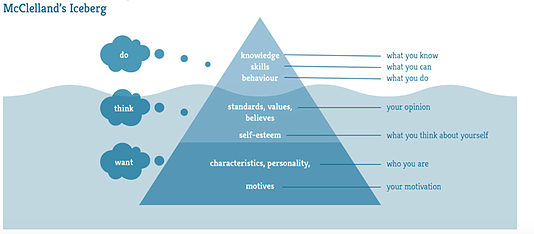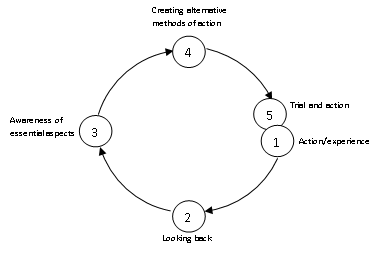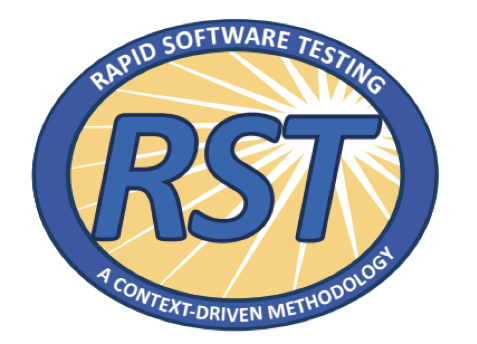“Once is coincidence
Twice is striking
Three times is pattern”
October 19-21 2018 DEWT held their 8th annual peer conference with “Developing expertise in software testing” as theme. I had the honour to open the conference with my experience report called “Mentoring and coaching to develop skills”. In the open season after my experience report and during the rest of the peer conference we talked about reflection on several occasions. I think one of the most important skills in learning is reflection.
My vision on learning
Learning is the process of acquiring new or adapting existing knowledge, behaviours, skills, values or preferences. Learning is much more than knowing: putting the learned into practice and gaining experience with it is important to truly internalise real knowledge and to gain skill. Learning must be linked to experiences from daily practice. By reflecting on knowledge and skills, so-called learning loops are created.
Learning is an ongoing process: the world is changing fast and to be excellent in your role requires many skills. So it is important to keep up! To learn effectively, learning should come from yourself, with intrinsic motivation and personal responsibility.
Learning requires a positive and open learning environment in which you can safely come out of your comfort zone to try new things. The safe environment gives confidence to make mistakes and to experiment with new knowledge and skills. It also demands a certain degree of challenge. How big the challenge is, is different for everyone. It is not that you always have to come out of your comfort zone radically. Right outside of your comfort zone, in your stretch zone, you learn best.
Effective learning requires focused learning with clear learning objectives and preferably evaluation criteria. It should be clear what you want to learn and how you can measure that. Where do you want to grow? And how do you know that you have made a step? By setting clear learning objectives, you focus on learning.
Levels of learning
There are different levels of learning: (ref: Joris van de Griendt)
- In single-loop learning (improvement, behavioural improvement), it is about the visible and concrete behavioural level (what): you do something and that has a certain effect. This effect may be desirable or not, and based on that assessment, you can adjust your behaviour or not.
- Double loop (reframing, behavioural renewal) If you want to change your behaviour permanently, there is double-loop learning: researching which patterns the behaviour involves (how). Which patterns and mechanisms are behind the behaviour? Which helpful or obstructing thoughts are involved? Insight into this can provide a more well-founded choice to change behaviour.
- Triple-loop learning (transformation, behavioural development) goes even deeper. You involve your values, your purpose, the why question: why do I really want to change this behaviour? What important values in me support this and what stops me?
What is reflection?
Reflection is a process of exploring and examining ourselves, our perspectives, attributes, experiences and actions / interactions. It helps us gain insight and see how to move forward. (ref: University of Edinburgh).
When we reflect, we deeply consider something that we might not otherwise have given much thought to. This helps us to learn. Reflection is concerned with consciously looking at and thinking about our experiences, actions, feelings, and responses, and then interpreting or analysing them in order to learn from them. (ref: The Open University).
Reflection is looking back at your behaviour in a certain situation. You reflect on that situation by asking yourself meaningful questions to make you think about the situation. The difference between just thinking and reflection is the intention to learn. There is a difference between evaluation and reflection. Evaluation means making a judgement about something you did. For example: did you reach your goal? Did I do the right thing? While reflecting means creating a safe space to investigate behaviour without making a judgement with the intention to grow.
Like learning, there are different levels of reflecting:
- Single-loop reflection focuses on behaviour and actions and is very close to evaluation.
- Double-loop reflection means trying to get hold of underlying convictions that interfere with the adjustment of interaction and behaviour.
- Triple-loop reflection is about motives and matters that touch on their own identity. There is often a relationship with issues at a higher level, that of the organisation or even of an entire system.
Iceberg

(image credit: Dutch Vision Institute)
Above the waterline behaviour is perceptible and statements are audible. But opinions, beliefs, feelings and emotions are not visible; they are below the waterline. These invisible elements, however, are often the motives for visible behaviour. An important part of the reflection will therefore consist of researching these deeper layers of the Iceberg.
By not addressing all layers within one’s competence management, you allow the coachee to act for incongruously (say A and do B, or vent a belief that contradicts his own motivation); just like external fragmentation (non-integration in the context), internal fragmentation (in the context of do-thinking motives) also leads to a real risk of energy loss.
Korthagen

(ref: How do I use the Korthagen reflection circle diagram?)
Korthagen’s reflection cycle is a tool or a strategy to be followed for learners to gain insight into their educational performance and to improve this. By applying this cycle step-by-step, one learns to systematically reflect a skill to be learned.
Phase 1: Describe the experience/situation you wish to reflect upon. What was the actual situation? You can do this by using the STARR(S) method: Situation-Task-Action-Result-Reflection-Strengthen (see appendix).
- What did I have to do in this situation?
- What action did I actually take?
- What was the outcome of this action?
Phase 2: Looking back: What exactly happened?
- What did I see?
- What did I do?
- What did I think?
- What did I feel?
Phase 3: Awareness of essential aspects
- What does that mean to me now?
- What is the problem (or the positive discovery)?
- What has all that caused? What does it involve?
Phase 4: Alternative methods
- What alternative methods do I see (solutions or ways of making use of what I have discovered)?
- What are their advantages and disadvantages?
- What will I remember for next time?
Phase 5: Trial/action
- What do I want to achieve?
- What should I watch out for?
- What do I want to try out?
Danger of thinking too much
Reflecting is an active activity that demands skills. It often happens that professionals think they reflect, while they are actually worrying.
This points out the important differences:
Worry
- Involved in itself, looking from our own perspective, alone
- Focused on mistakes
- Focused on judging and condemning
- Global approach
- Mono causal approach
Reflection
- Involved in the problem, also looking at a perspective outside of oneself, in contact with others
- Focused on solutions
- Focused on understanding
- Analytical approach
- Multi causal approach
Tips for reflecting
You can reflect on every situation and every problem that concerns you. You can learn a lot from that, but the pitfall is that you will be overwhelmed by the information and will keep looking back endlessly. Another danger is that you may feel that you are actually doing a good job – the work is going well, there is no criticism from colleagues or your supervisor – and so you see no reason to reflect. Yet it can also be very instructive to reflect on yourself and your way of acting.
The following tips can help you reflect:
- Choose a concrete situation and look back on that specific moment and your course of action
- Reflect regularly and ‘schedule’ at least once a week a reflection moment, preferably at a fixed time
- Ask yourself open questions
- Explain judgments about yourself; first see what really happened before judging yourself
- Reflect in a methodical way, for example by going through a list of questions or use a reflection model
- Reflect not only on problem situations but also on success experiences
- Use feedback from others to reflect from that point of view
- Read more about reflection to get inspired. This is a nice blogpost about reflection: How Self-Reflection Gives You a Happier and More Successful Life. For more inspiration read this: Tools to help you with self-reflection
Together you learn even more
It is already very instructive to consider your own functioning in this way, but it can be even more profitable if you do this together with others. Do not try to judge here either. Not about others, nor about yourself: you feel free to tell everything. For example, start doing intervision with peers or colleagues. More about intervision here: Intervision: what is it about?
Start a journal
Writing in a journal regularly (preferably daily on a specific time) helps to analyse your professional and personal growth. Journaling can give you a different perspective on things. Writing in your journal is a very useful tool to help you understand yourself and the world around you. Write down activities, thoughts, ideas, reasons, actions, techniques and reflections on specific topics or skills you want to improve. By writing in a journal you get an overview of your thoughts in which you can identify patterns. Journaling helps you to get thoughts and ideas out of your head but more important it enables making sense of things that happened. After doing something related to your learning goal, take notes on your observations, summarise facts and experiences. Also write down how it makes you feel.
More about reflective journaling in this article: Reflective Journals and Learning Logs.
Here are two helpful checklists to help you reflect:



0 Comments
2 Pingbacks